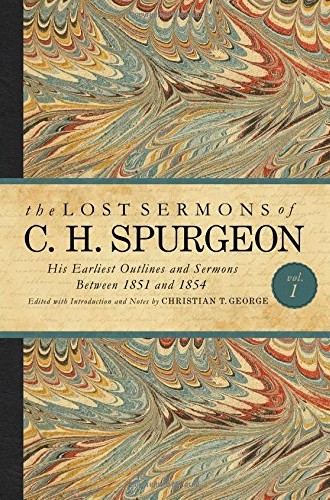The beauty of Charles Spurgeon
My temptation to spurn the evangelical preacher slipped away when I opened this volume.
I’ll admit it: until I picked up this book of Charles Spurgeon’s early sermon notes, I didn’t know much about the evangelical preacher other than that he was . . . well, an evangelical preacher. I’m okay with preachers, but the term evangelical has some recent baggage that’s hard for me to shake off. “I’m not that kind of Christian,” I find myself saying repeatedly. At the same time, I take seriously the warning my pastor offered in a recent sermon: Autocracy thrives on groups of people defining themselves against one another.
So I laid aside my presuppositions about Spurgeon (and evangelicals) and picked up this book of his sermon outlines from 1851 to 1854, which were discovered in 2011 and are now in print for the first time. I was immediately struck by the book’s weight and beauty. The pages are thick and glossy. Spurgeon fans and scholars will appreciate the clear full-color facsimiles of journal pages, color-coded typed versions of the text, and copious footnotes commenting on everything from variations in handwriting to smudges on the page. This volume, compiled and edited by theologian Christian T. George, is the first of 12. I found myself daydreaming about how beautiful the entire set would look on a pastor’s desk or a scholar’s shelf.
The book is also theologically solid. Most of the pages contain outlines rather than full sermons, but these outlines and George’s accompanying notes demonstrate that theological solidity can rest upon a foundation of fragments and short phrases. On 1 John 3:1, Spurgeon describes humans as “Insignificant. Worthless. Rebellious. Depraved.” He then describes God’s conferring of love: “By Jesus Christ’s death. Here is wonder.” Elaborating the doctrine of election in a sermon on Ephesians 1:4, Spurgeon writes these notes under the heading “Election is eternal and absolute”:
No merits in it. Not on the foresight of obedience since this is a fruit. No obedience deserves it. Nor can prayer or faith deserve it. If salvation be a gift there must be an election of receivers, and see how cross this seems. The base, not the lofty. The thief, not Alexander. Publican, not Pharisee. Jacob, not Esau. How humbling. No flesh here can glory.
In a note following the text, George explains that “cross” had numerous meanings in Spurgeon’s day. In this context, “Charles likely used the word to mean ‘perverse; untractable’ or ‘contrary.’” The Lutheran in me can’t help but think of the theology of the cross, whereby our knowledge and experience of God’s grace come through means that are the opposite of what we would expect. In weakness is our salvation. In a crucified man is our victory. How humbling, indeed. No flesh here can glory.
Spurgeon was a famously eloquent orator who in October of 1857 preached to a crowd of 23,654 people in London. He was also a staunch abolitionist whose denunciations of slavery led to death threats, book burnings, and character assassinations across the American South, where he had hoped to travel on a preaching tour. In 1860, while Baptists from Florida to Virginia were burning his sermons and consigning him to hell, Spurgeon was in London planning to publish his earliest notebooks. He never accomplished that goal, but I’m grateful that George now has.






